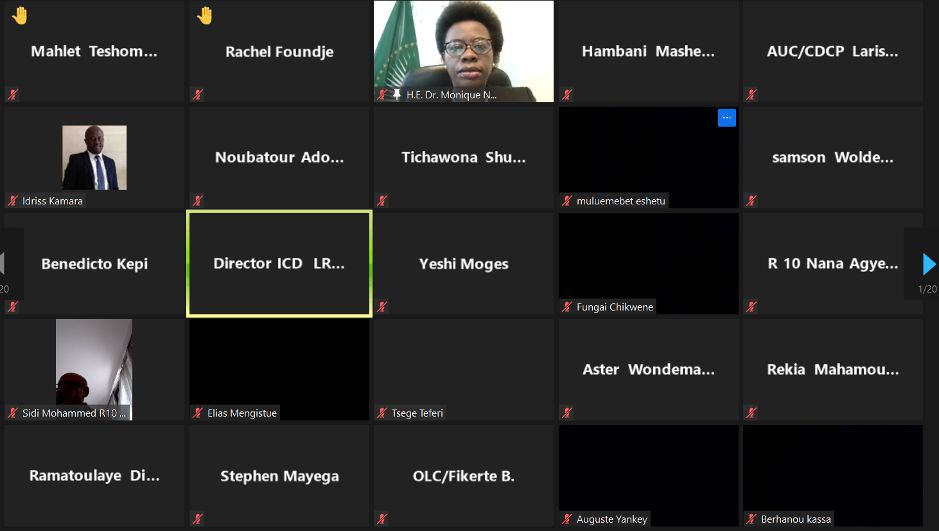Topic Resources
Agenda 2063 is Africa’s development blueprint to achieve inclusive and sustainable socio-economic development over a 50-year period.
Supply Chain Management Division Operations Support Services Directorate
Addis Ababa, Ethiopia

Promoting Africa’s growth and economic development by championing citizen inclusion and increased cooperation and integration of African states.

Promoting Africa’s growth and economic development by championing citizen inclusion and increased cooperation and integration of African states.

Agenda 2063 is the blueprint and master plan for transforming Africa into the global powerhouse of the future. It is the strategic framework for delivering on Africa’s goal for inclusive and sustainable development and is a concrete manifestation of the pan-African drive for unity, self-determination, freedom, progress and collective prosperity pursued under Pan-Africanism and African Renaissance.

H.E. Mr. Paul Kagame, President of the Republic of Rwanda, was appointed to lead the AU institutional reforms process. He appointed a pan-African committee of experts to review and submit proposals for a system of governance for the AU that would ensure the organisation was better placed to address the challenges facing the continent with the aim of implementing programmes that have the highest impact on Africa’s growth and development so as to deliver on the vision of Agenda 2063.


The AU offers exciting opportunities to get involved in determining continental policies and implementing development programmes that impact the lives of African citizens everywhere. Find out more by visiting the links on right.

In line with the ongoing implementation of the institutional reforms of the African Union and its Transitional Plan, the Deputy Chairperson of the AU Commission convened a virtual staff town hall meeting on Friday 21 May 2021, to present the various activities undertaken to expedite the restructuring of the AU Commission and its Transitional Plan. This is in accordance with the February 2021 virtual Summit which mandated the AUC Chairperson (CP) to develop a new departmental structure that is lean and performance-oriented, taking into account the division of labour between the African Union, RECs and Regional Mechanisms, Member States and continental organisations. The Deputy Chairperson H.E Dr. Monique Nsanzabaganwa under the leadership of H.E. Moussa Faki Mahamat, Chairperson of the AU Commission, was entrusted with the responsibility of spearheading the effective implementation of the Transitional Plan.
Addressing the Staff Town Hall meeting, the Deputy Chairperson recalled that, ever since her appointment in February 2021, she has been actively engaging with all the relevant directorates, familiarising herself with the work of the AU Commission and holding information consultations aimed at ensuring the smooth, effective and efficient implementation of the AUC transitional plan. This first meeting was therefore an opportunity to formally introduce herself to them, and update them on the activities that have been undertaken under the Transitional Plan, among others. She underlined the role of the Staff Association in ensuring that the interests of the staff members are well captured during the reform process.
The Deputy Chairperson went through all the actions that will be taken during the implementation of the AU Reforms. The floor was then open for staff members to express their views, and to make contributions and recommendations for consideration by the AUC leadership. Key areas of discussion included the recruitment of the senior leadership, the skills audit, the Merit Based Recruitment System (MBRS), counselling for staff as part of the change management process and improved inclusion of the AU organs and institutions in the reforms discourse.
The institutional reform of the African Union aims to establish a high performing, efficient and effective organization, that is able to deliver on agreed continental priorities, as well as attract and retain the best quality personnel, that are motivated and committed to delivering to the highest standards while operating within a strong accountability and performance based framework.
Also in attendance at the staff town hall meeting were the R10 members, who have played a key role in designing and developing the Merit Based Recruitment System (MBRS) for the AU, and the Skills Audit and Competence Assessment Process among others. Representatives from the AU Reform Unit also took part in the staff meeting.
Agenda 2063 is Africa’s development blueprint to achieve inclusive and sustainable socio-economic development over a 50-year period.
Supply Chain Management Division Operations Support Services Directorate
Addis Ababa, Ethiopia
